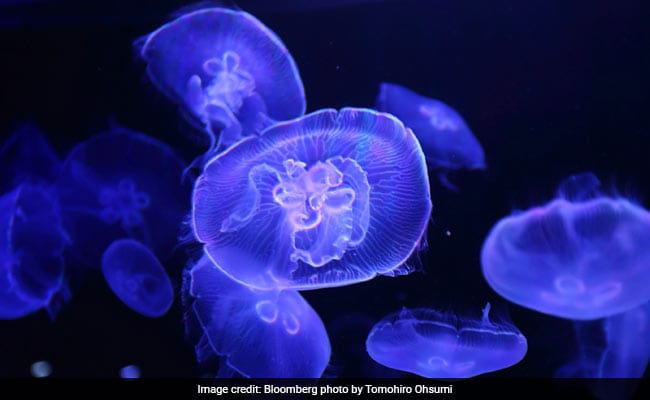Australia Jellyfish “Epidemic”: While the vast majority of those stings are not life-threatening and were caused by so-called bluebottle colonies, researchers say that the number of more serious injuries from less common jellyfish is also at above average levels.
Authorities in Queensland, Australia, were forced to close beaches across the region over the weekend, amid what local officials said was a jellyfish “epidemic.” More than 13,000 stings were recorded in Queensland alone last week, with more than 2,500 people seeking treatment over the weekend, according to rescue organizations.
While the vast majority of those stings are not life-threatening and were caused by so-called bluebottle colonies, researchers say that the number of more serious injuries from less common jellyfish is also at above average levels.
Some researchers also say this jellyfish infestation could be one more thing to blame on climate change.
“Unlike other species, jellyfish are stimulated by just about any change to the ecosystem. So, it’s reasonable to say that the jellyfish might potentially be responding to the warmer-than-usual weather,” said marine life researcher Lisa Gershwin, who works with the Commonwealth Scientific and Industrial Research Organisation, which is Australia’s national science agency.
While researchers are still examining how much recent heat waves may have contributed to the current jellyfish bloom off Australia’s coasts, they can already say with certainty how they got to the beaches: strong and unusual winds pushing toward Queensland.
Gershwin and other scientists say that the surge in stings is unlikely to be coincidental. “Jellyfish are demanding our attention right now and we should be giving it to them. Those stings are an indication that something is wrong with our oceans – and we’re silly that we’re not listening,” said Gershwin.
While some scientists have been more careful about linking climate change and jellyfish blooms, given a lack of long-term data so far, most researchers agree that jellyfish populations respond positively to a number of human-induced changes, including pollution, overfishing and warmer water. “All of this takes out their predators and competitors, so they’re the ‘last men standing,'” said Gershwin.
For some less common species, that’s also true for any contact with humans. While a so-called Irukandji variety of jellyfish can cause hours-long body pain and potential strokes, the number of actual deaths is relatively low. By 2017, there had only been two recorded fatalities in Queensland, according to the Department of Health there. Far more dangerous are box jellyfish, which have caused over 70 fatalities across Australia.
Even though there is no definite way to predict future fatalities caused by jellyfish blooms, Australian researchers are concerned that the numbers could rise significantly.
Australian environmental activists say that their own government shares some of the blame, pointing at the lack of a coordinated effort to target plastic pollution in the waters around the Australian coastline, for example. In October, the conservative governing party faced additional criticism after it rejected calls to abandon coal power by 2050.
While Australia’s current government does not appear in a rush to tackle some of those factors, other nations like China have a far bigger carbon and plastic waste footprint and it’s unlikely that this will change any time soon. Combined, that makes for some pessimistic predictions.
“(Jellyfish) are bad for the environment; they’re bad for humans. Having more jellyfish isn’t something good – but I’d say we’re on track to that,” said researcher Gershwin.













